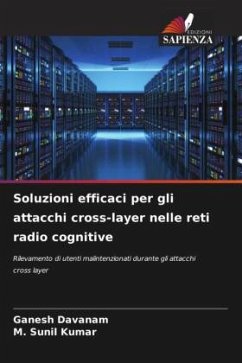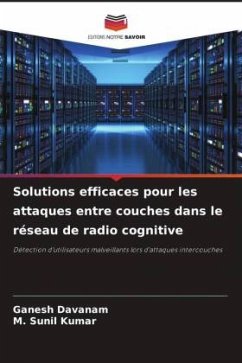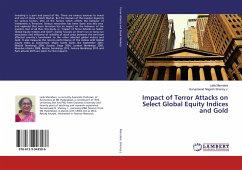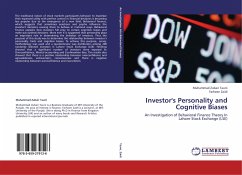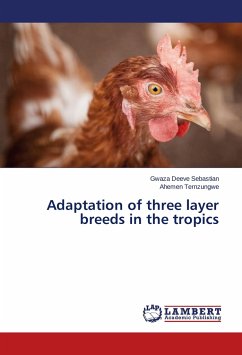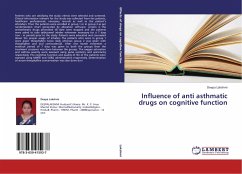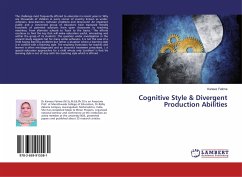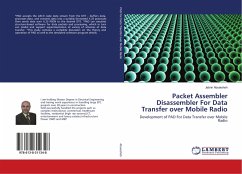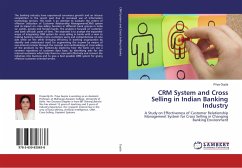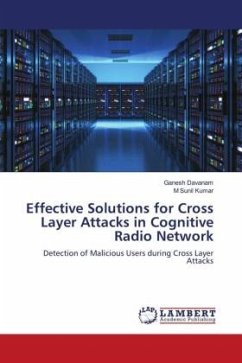
Effective Solutions for Cross Layer Attacks in Cognitive Radio Network
Detection of Malicious Users during Cross Layer Attacks
Versandkostenfrei!
Versandfertig in 6-10 Tagen
40,99 €
inkl. MwSt.

PAYBACK Punkte
20 °P sammeln!
Cognitive Radio Networks (CRNs) have come out as an encouraging next-generation network technology that addresses the issues related to dynamic Spectrum Access and enhanced utilization of spectrum in a significant manner. Specifically Trust, Reputation Management models and Cross layer defense mechanism are more and more regarded for CRNs to secure them against the attacks posed by the secondary users. In this Work, a method called, Mean Bid Trust & Multiple Nash Reputation (MBT-MNR) and Optimized Levensthein Cross layer Defense framework methods are proposed to secure the CRN by detecting the...
Cognitive Radio Networks (CRNs) have come out as an encouraging next-generation network technology that addresses the issues related to dynamic Spectrum Access and enhanced utilization of spectrum in a significant manner. Specifically Trust, Reputation Management models and Cross layer defense mechanism are more and more regarded for CRNs to secure them against the attacks posed by the secondary users. In this Work, a method called, Mean Bid Trust & Multiple Nash Reputation (MBT-MNR) and Optimized Levensthein Cross layer Defense framework methods are proposed to secure the CRN by detecting the attackers at two different layers, Physical and Data link layers. Mean Bid Cross Layer Trust Evaluation model is applied to measure the trustworthiness of secondary user by third party. Followed by which, the classification of malicious and normal user is made by applying the Multiple Nash Game Theory model. Optimized Levesthein Nearest Centroid Framework (OS-LNCC) is proposed to mitigate Cross Layer attacks in CRN's. The performance of both the methods is evaluated by various parameters such as energy consumption, detection time, Sensing Delay, Throughput and detection accuracy.



